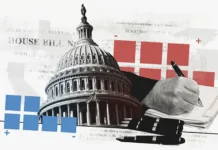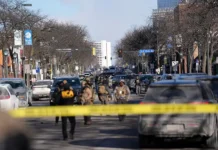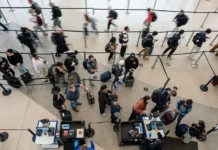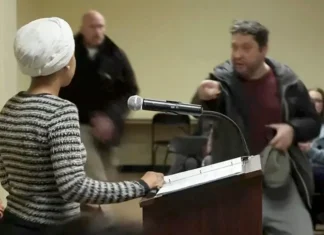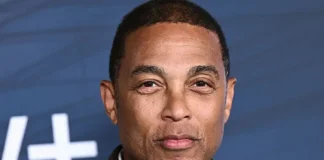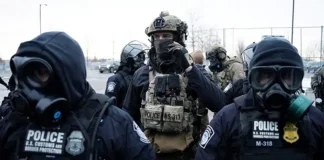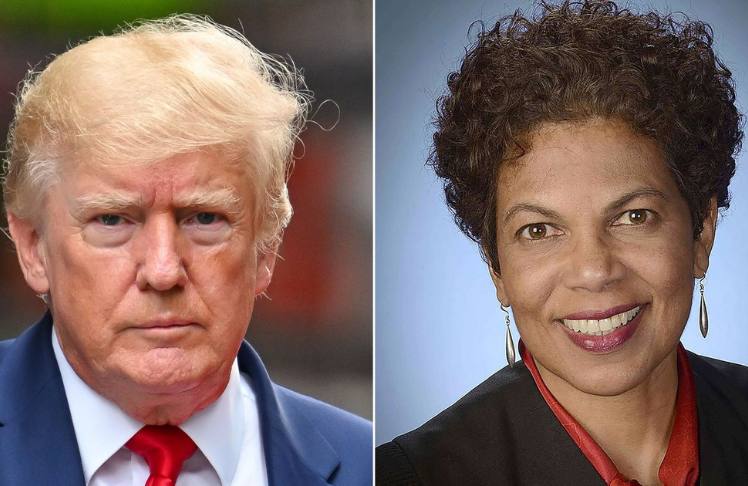
By Hannah Rabinowitz and Tierney Sneed, CNN
(CNN) — US District Judge Tanya Chutkan said Friday that she plans to issue a protective order over the handling of evidence in the Donald Trump 2020 election interference case, saying it’s needed to protect witnesses or other interference in the trial.
The former president has a right to free speech, but that right is “not absolute,” the judge said at a hearing Friday.
“Mr. Trump, like every American, has a First Amendment right to free speech, but that right is not absolute. In a criminal case such as this one, the defendant’s free speech is subject to the rules,” Chutkan said.
“Without a protective order, a party could release information that could taint the jury pool, intimidate witnesses or others involved in some aspect of the case, or otherwise interfere with the “process of justice,” she added.
This is the first hearing before Chutkan. She has already shown a habit of responding quickly and tersely on the docket to debates between the parties over scheduling. An Obama appointee and former public defender who has overseen several cases regarding the events of January 6, 2021, Chutkan has been outspoken about the harm the US Capitol attack caused to American democracy.
Chutkan had a pointed exchange with Trump attorney John Lauro about what the 2024 presidential contender should be allowed to say about the evidence that is turned over to him in the case.
“The fact that he is running a political campaign currently has to yield to the administration of justice,” the judge said. “And if that means he can’t say exactly what he wants to say in a political speech, that is just how its going to have to be.”
She raised the prospect that Trump’s public commentary about the evidence in the case could intimidate witnesses. Lauro asked her if she was referring to former Vice President Mike Pence, but the judge said she was talking about any witness in the case.
“The defendant’s desire to conduct a campaign, to respond to political opponents, has to yield,” Chutkan said.
Lauro tried to pivot to how the prosecutors had set up what would be deemed sensitive evidence under the proposed protective order.
“No one disagrees that any speech that intimidates a witness would be prohibited, what we are talking about is fair use of information,” Lauro said, putting forward a hypothetical that Trump is publicly remarking on something from his personal memory that is also evidence in the case.
Lauro said that “in a heated moment” someone might say something that prosecutors had put a flag on.
The judge told Lauro that she would “ensure that your client is entitled to all the rights” he is afforded.
Chutkan said that “the existence of a political campaign is not going to have a bearing” on how she handled the case. “I intend to keep politics out of this.”
Trump pleaded not guilty to four criminal charges related to his efforts to overturn the 2020 presidential election last week. The special counsel said Thursday it wants the trial to begin on January 2, 2024, a date that Trump rejected in a social media post.
How Chutkan handles the case is likely to serve as a contrast to US District Judge Aileen Cannon, a Trump appointee in Florida who has been in less of a rush to move proceedings along in the classified documents case against the former president. Cannon has already been heavily scrutinized for what critics say is a favorable treatment of the former president in a previous lawsuit Trump brought last year challenging aspects of the Justice Department’s investigation.
Scope of protective order over evidence
In Friday’s hearing, lawyers are debating the scope of a protective order governing evidence that prosecutors say proves Trump conspired to overturn the election, interrupt Congress and take away every American citizen’s right to have their vote counted.
Protective orders are a normal part of any criminal case and are typically approved without much drama. In this case, however, the special counsel’s office and Trump’s defense lawyers have battled in court filings over what Trump will be able to discuss publicly.
Among the restrictions the prosecutors are requesting in this case is a rule barring Trump’s lawyers from providing copies of “sensitive” evidence to the former president, including witness interviews and grand jury transcripts from the dozens of witnesses in Trump’s circle who have spoken to prosecutors.
To make their point, prosecutors pointed to Trump’s social media posts since he was indicted last week, including a vague and ominous Truth Social post reading “IF YOU GO AFTER ME, I’M COMING AFTER YOU!” Trump also slammed Chutkan, writing in one all caps post, “There is no way I can get a fair trial with the judge ‘assigned’ to the ridiculous freedom of speech/fair elections case. Everybody knows this and so does she!”
The posts, prosecutors said, emphasized the need for a protective order that would limit whether Trump can discuss or share evidence on his social media accounts during the course of the legal case.
“If the defendant were to begin issuing public posts using details – or, for example, grand jury transcripts – obtained in discovery here, it could have a harmful chilling effect on witnesses or adversely affect the fair administration of justice in this case,” prosecutors wrote.
For their part, Trump’s legal team proposed less restrictive rules, alleging that prosecutors are on a politically motivated campaign to restrict his First Amendment rights. His defense lawyers pushed back on prosecutors’ definition of “sensitive” material that should be subject to additional rules, and asked to expand who can access certain evidentiary materials.
If Trump were to violate any eventual protective order Chutkan issues, he could be held in contempt.
This story has been updated with additional developments.
The-CNN-Wire
™ & © 2023 Cable News Network, Inc., a Warner Bros. Discovery Company. All rights reserved.


